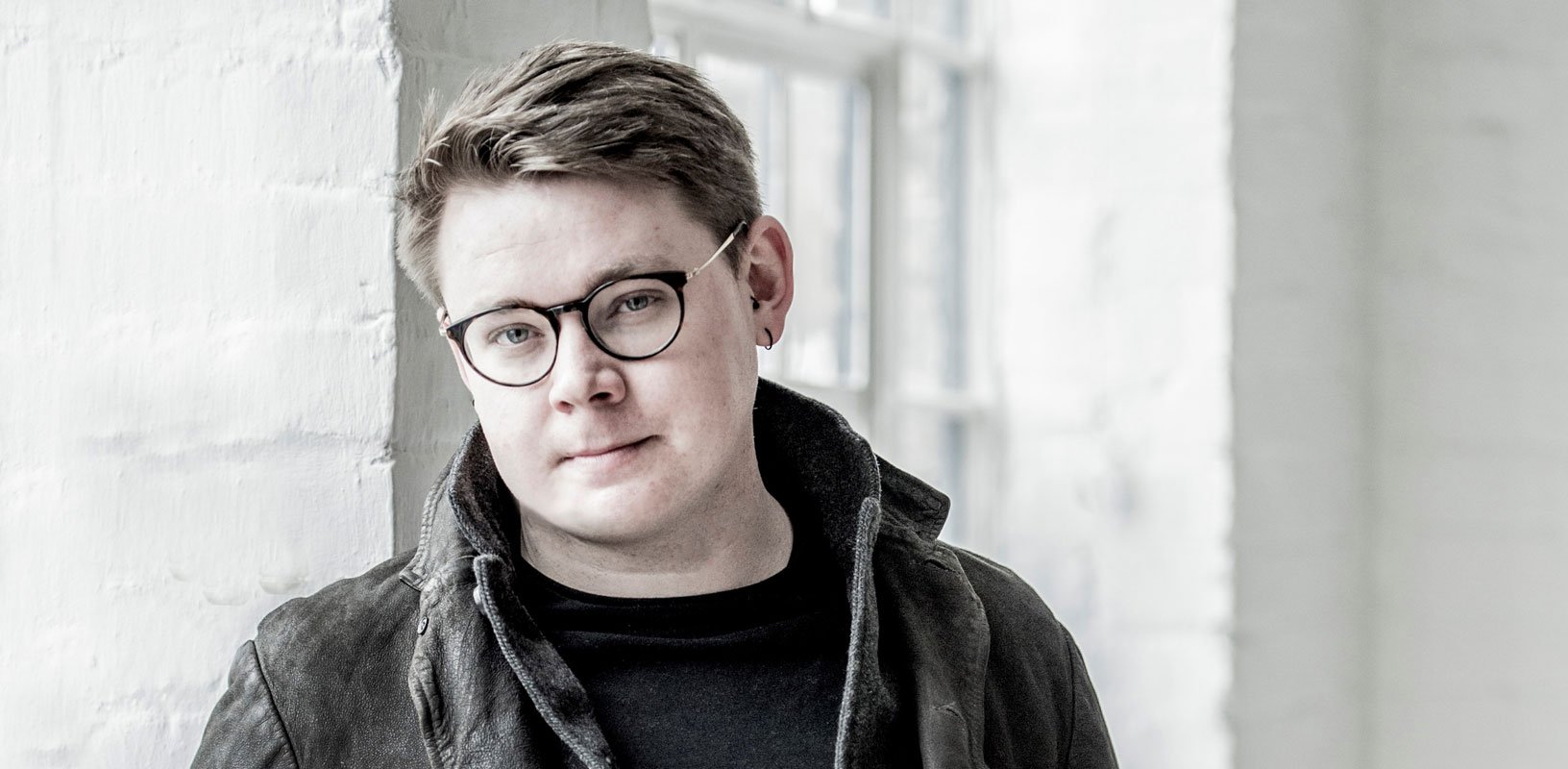Mark Simpson: interview on his new Cello Concerto

Mark Simpson introduces his new Cello Concerto written for Leonard Elschenbroich, premiered with the BBC Philharmonic in Manchester on 21 April.
As a clarinettist you’ve played a great number of concertos. How has this affected your composing of such a work?
I’ve always felt that my playing and composing were inextricably linked. The kind of music I like to play, and the way I like to perform it, is usually high risk, with lots of opportunity to show the many sides of my instrument’s capabilities. I also tend to be drawn towards things that are dramatic in nature and that are usually highly expressive. All I had to do was be aware and let this channel itself into the work. I also wanted to move away from a kind of concerto trope that has emerged in more recent times. Too often the writing for the soloist is a catalogue of extended techniques, where seemingly the pitch content and the expressive, lyrical nature of the instrument doesn’t seem to matter as much as how many effects you can fit into every second.
Is there a particular personality you associate with the cello, or particular instrumental characteristics you’ve drawn upon?
The cello is characteristically dark, sombre and melancholic. I have explored this side of the instrument in the second movement but have also tried to head in other directions for much of the piece, including creating music that is more optimistic in tone, particularly in the last movement which is more dance-like. More important for me than the instrument is the personality and style of the player and, with Leonard Elschenbroich, I knew I was writing for a musician who has the power to communicate an intense depth of expression.
What was the starting point for the concerto? Did you plan key events or did it progressively evolve?
There’s a dramatic element to my music, including pieces for the concert hall, so my first ideas were for a narrative work with a central protagonist surrounded by larger forces. But then practicality set in as I realised my bigger compositional challenge was allowing the cello soloist to be heard. Thinking about the relationship between the cellist and the orchestra made me understand that the drama had to come through melody. This would be explored in a number of different aspects: first hyper-lyricism, then lament, and finally dancing.
What role has Leonard Elschenbroich played in the creation of the work’s material?
We talked a lot before I started composing, both about practical details and broadly about the concerto as a form. There are some mini-cadenzas in the second movement we worked on together that really highlight his skills as a virtuoso. And we discussed how moments of solo playing could connect with the audience and how it can, albeit rarely, shift a piece or performance into a different spiritual realm. This was my aim with the cadenza in the last movement, creating a transcendental reflective moment. This will hopefully balance the searing lyricism of the first movement where the soloist drives the music forward, flying above the orchestra.
In terms of scoring, how have you tackled the specific balance problems of hearing the middle register instrument?
This has been a valuable discipline for me, as a lot of my earlier music such as Israfel or The Immortal has been characterised by rich, complex and dense writing. Here I’ve started with a more restrained palette, with double winds and only two percussionists, and have attempted to strip the paint off the canvas. I’ve kept asking myself if the cello would be audible, and if there are things you don’t need, cut them out. This process has forced me to focus in on the nuts and bolts of my music.
The concerto plays continuously but should the listener look for distinct sections?
The signposts for the three movements should be clear. The first movement dissolves to a moment of suspension, leading into the lament of the second movement which is a further exploration of the mood of the Lachrymosa section of The Immortal, with no wind or brass and multi-divided strings creating an eerie, veiled soundworld. The start of the third movement is an explosion of rhythms and movement, gathering its dancing momentum.
Following an oratorio and an opera, has your first concerto brought particular discoveries as a composer?
Once I get inside a piece I’m not daunted that it may be my first work in a particular form. I’m just taking on the challenge and trying to find technical and expressive solutions. The new score can be summed up as a search for melody and I can now see that the composition process was a dawning acknowledgement that this is a fundamental part of my make-up. I discovered the real reason why I’ve always wanted to write a concerto.
Interviewed by David Allenby, 2018
Mark Simpson
Cello Concerto (2016-18) 22’
Commissioned by BBC Radio 3
21 April 2018 (world premiere)
Bridgewater Hall, Manchester
Leonard Elschenbroich/BBC Philharmonic/Clemens Schuldt
BBC Radio 3 broadcast: 2 May 7.30 pm
> BBC Philharmonic
> Bridgewater Hall
> Further information on Work: Cello Concerto
Photo: Sim Canetty-Clarke
